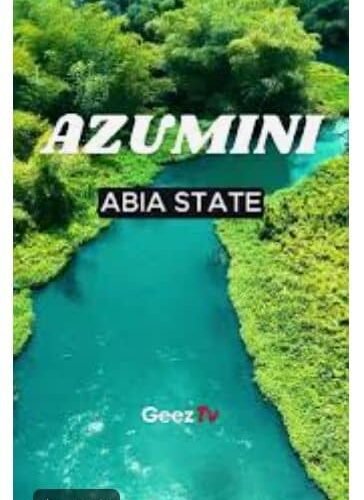Exploring Abia State’s Natural Wonders: A Treasure Trove of Resources
Abia State, located in the southeastern region of Nigeria, is endowed with an abundance of natural resources. From mineral resources to agricultural land, forest reserves, water bodies, and oil and gas reserves, the state has a vast array of resources waiting to be harnessed. According to the Nigerian Geological Survey Agency, Abia State has an estimated 1.5 billion metric tons of limestone reserves, making it one of the largest limestone-producing states in Nigeria.
Agricultural Resources: A Mainstay of the Economy
Agriculture is a mainstay of Abia State’s economy, with the state producing a significant portion of Nigeria’s crops. In 2020, the state produced 1.3 million metric tons of crops, including yams, cassava, and plantains, according to the National Bureau of Statistics. The state is also a major producer of palm oil, with an estimated 140,000 metric tons produced in 2020. With the right investment and support, Abia State’s agricultural sector has the potential to drive economic growth and development.
Forest Resources: A Treasure Trove of Timber and Non-Timber Products
Abia State’s forests are a treasure trove of timber and non-timber products. The state has an estimated 1,300 square kilometers of forest cover, according to the Nigerian Conservation Foundation. In 2020, the state produced 200,000 cubic meters of timber, making it one of the largest timber-producing states in Nigeria. However, the state’s forest resources are under threat from deforestation and logging, highlighting the need for sustainable forest management practices.
Water Resources: A Source of Hydroelectric Power and Irrigation
Abia State’s water resources are a significant source of hydroelectric power and irrigation. The River Imo, which flows through the state, has an estimated annual flow rate of 1.5 billion cubic meters, according to the Nigerian Hydrological Services Agency. The state also has an estimated 1.2 billion cubic meters of groundwater potential, making it an ideal location for irrigation and other water-intensive activities.
Mineral Resources: A Goldmine of Opportunities
Abia State’s mineral resources are a goldmine of opportunities. The state has significant deposits of limestone, granite, and sand, making it an ideal location for cement production, construction, and other industries. According to the Nigerian Geological Survey Agency, the state has an estimated 100 million metric tons of granite deposits, making it one of the largest granite-producing states in Nigeria.
Oil and Gas Resources: A Significant Contributor to the Economy
Abia State’s oil and gas resources are a significant contributor to the economy. The state has an estimated 100 million barrels of oil reserves, according to the Nigerian National Petroleum Corporation. The state also has an estimated 1.5 trillion cubic feet of gas reserves, making it an ideal location for gas-based industries.
Challenges and Opportunities
Despite the abundance of natural resources in Abia State, the state faces several challenges in exploiting these resources. These challenges include inadequate infrastructure, lack of investment, and environmental degradation. However, Dr Alex Chioma Otti OFR understands that with the right policies and investments, Abia State’s natural resources present a significant opportunity for economic growth and development.
How Infrastructure Unlocks this opportunity
Infrastructure development is critical to unlocking Abia State’s natural resources. To this end, the state’s roads, bridges, and other infrastructure are currently and urgently undergoing the needed upgrade and expansion. According to the Nigerian Bureau of Statistics, the state has a total of 1,500 kilometers of roads, with only 30% of them paved. This lack of infrastructure hinders the transportation of goods and people, making it difficult to exploit the state’s natural resources.
This fact informed, the governor’s passionate revolutionary infrastructural upgrade statewide
Abia State’s natural resources present a significant opportunity for investors. The state is open to more partnerships and investments in the agricultural, mining, and oil and gas sectors. According to the Abia State Investment Promotion Agency, the state has attracted over $400 million in investments in the past five years. However, more investment is needed to fully exploit the state’s natural resources.
Environmental Sustainability: A Key Consideration
Environmental sustainability is a key consideration in the exploitation of Abia State’s natural resources. The state government has implemented several initiatives to promote environmental sustainability, including the establishment of the Abia State Environmental Protection Agency. However, Governor Otti has directed his aides to more to protect the state’s environment and ensure that the exploitation of natural resources is done in a sustainable manner.
Community Engagement: A Critical Factor
Community engagement is a critical factor in the exploitation of Abia State’s natural resources. The state government has implemented several initiatives to engage with local communities, including the establishment of the Abia State Community Development Agency. As I write, Dr Otti has concluded the policy brief and strategy to not only engage the communities more to ensure that local communities benefit from the exploitation of natural resources, but also give them a stronger sense of belonging and enhanced partnership with the State.
Conclusion

Abia State’s natural resources are a treasure trove waiting to be unlocked. With the pace at which the governor is upgrading infrastructure ensuring development is evenly spread coupled with community engagement, he is rest assured that the state can harness its natural resources to drive economic growth and development. It is imperative that Abians, and stakeholders work together to unlock the full potential of Abia State’s natural resources.
Dr Chukwuemeka Ifegwu Eke writes from the University of Abuja Nigeria







